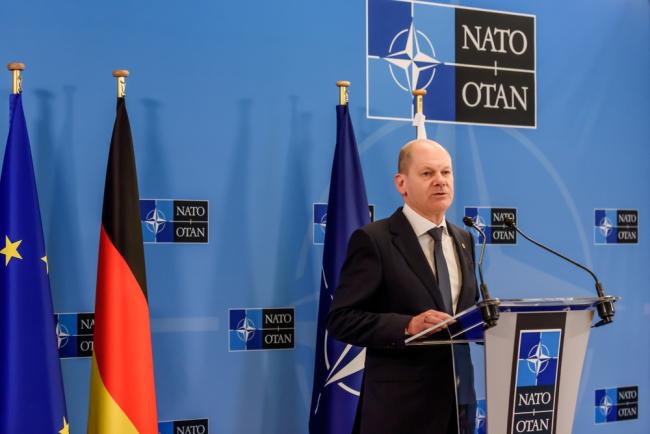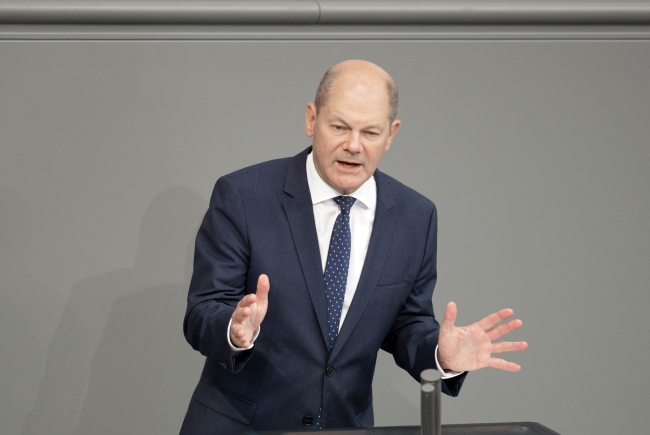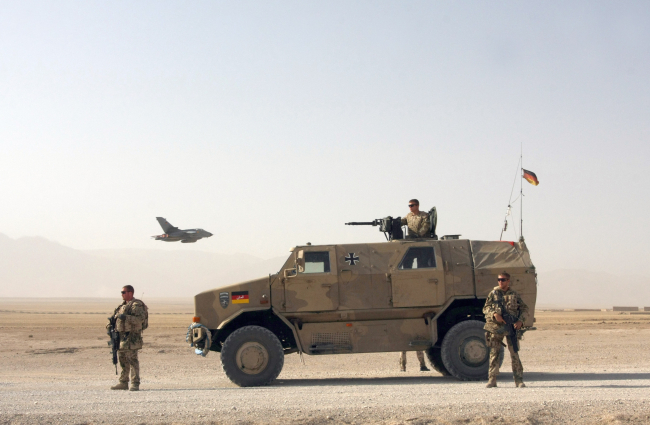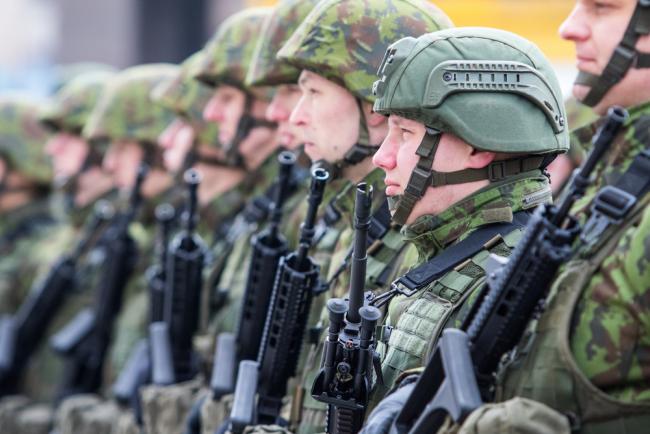Germany, the “Zeitenwende” and the Future of NATO
A “New Era”? Toward a Realignment of German Foreign Policy after the Russian Invasion of Ukraine
German Chancellor Olaf Scholz’s speech to the Bundestag on February 27, 2022, announced a new orientation in foreign policy and challenged the principles that had been the consensus in Germany for the past thirty years.
Circumstantial Pacifism: Political Parties and the Participation of the Bundeswehr in Foreign Operations
In Germany's parliamentary democracy, political parties play an important role in mandating Bundeswehr missions abroad and in overseeing their deployment. The political debate on these deployments is polarized between opponents, who are called “pacifists”, and supporters, who are called “militarists”.
Collective Collapse or Resilience? European Defense Priorities in the Pandemic Era
To what extent has the COVID-19 pandemic affected defense priorities across Europe?
Europe in the World: for a Modest and Effective Reform
This sad year ends with a pandemic that continues in full swing over a large part of the planet, especially in the United States and Europe, with no other reassuring prospect than that of one or more vaccines, which is already a lot. But that’s not the subject I want to focus on in this eighth letter, the last one for 2020. Internationally, two other facts have dominated the scene in recent months.
The Future of Europe from the US and Asian Point of View
In this special issue of Politique étrangère devoted to the proceedings of the conference organized by Ifri on April 10, 2019, in the Grand Amphitheater of the Sorbonne, on the occasion of its fortieth anniversary, discover the debate moderated by Sylvie Kauffmann between John Allen and Kishore Mahbubani.
A Vibrant and Flexible Alliance
NATO has proved its renewed usefulness and is today fully engaged, well beyond its former frontiers, wherever its interests and those of its members are threatened.
NATO: From Washington (1949) to Strasbourg/Kehl (2009)
The Alliance cannot avoid a strategic debate about its role, missions and resources. This may be painful, but it will ensure clarity and prepare the Alliance for future challenges.
Towards a Security Web
There is no global mechanism that can guarantee security effectively in the face of the growing threat of political chaos, stemming from the recent political awakening of humanity. There is no global mechanism that can guarantee security effectively in the face of the growing threat of political chaos, stemming from the recent political awakening of humanity.
The Global NATO Debate
The ultimate direction taken by the Alliance – be it a ‘return to home base,’ a ‘global expansion’ or the pursuit of ‘global missions’ – will be heavily influenced by perceptions of what happens in Afghanistan over the next two years.
The Reform of NATO and the Free World’s Security Pact
Reforming the structure does not go to the heart of the problem. A new understanding has to be reached among the allies that takes into consideration the political, economic and technical changes of the last decade.
NATO-Russia: Is the ‘Russian Question’ European?
The proliferation of theaters (in Europe, the Caucasus, Central Asia, the Far East, the Middle East and the Arctic) and cross-cutting issues (proliferation, disarmament, energy, arms sales) demonstrate the overall importance of the NATO/Russia relationship.
The Global NATO Debate
The ultimate direction taken by the Alliance – be it a ‘return to home base,’ a ‘global expansion’ or the pursuit of ‘global missions’ – will be heavily influenced by perceptions of what happens in Afghanistan over the next two years.
France’s “Return” to NATO: An Inopportune Decision
The French decision to re-enter NATO’s integrated military structure is merely the confirmation of a series of shifts that started a long time ago. But it is no less questionable a decision. It is a symbolic decision that affects France’s image internationally. It by no means guarantees that the Alliance will evolve in a way that corresponds to France’s national interests; nor does it shed light on France’s ambiguous future. It does, however, in a very real way, risk diminishing France’s will to defend itself.
NATO: A View from Central Europe
Poland is not just concerned with the usefulness of the Alliance, but also with what can be done to make it more effective, and to maintain its relevance and good health in the decades ahead.
A Vibrant and Flexible Alliance
NATO has proved its renewed usefulness and is today fully engaged, well beyond its former frontiers, wherever its interests and those of its members are threatened.
Reforming NATO’s Institutions: Pressing Need, Enduring Obstacles, New Opportunities
The lessons learned from its engagement in Afghanistan, a desire to transform itself, and its current financial problems are all factors pointing to the need to reform the Alliance. Formulating a new Strategic Concept will allow institutional reform to be associated with a new sense of purpose.
NATO and Russia Viewed from Moscow
A new window of opportunity seems to be opening up for NATO and Russia, to re-think their relationship and how to institutionalize it through binding agreements and a permanent decision-making mechanism.
Towards a Security Web
There is no global mechanism that can guarantee security effectively in the face of the growing threat of political chaos, stemming from the recent political awakening of humanity. There is no global mechanism that can guarantee security effectively in the face of the growing threat of political chaos, stemming from the recent political awakening of humanity.
Considerations on NATO’s Future Direction
The question of how the Alliance can best meet the common security problems of its member states should determine the revision of the Strategic Concept and analysis of the future of NATO in general.
Support independent French research
Ifri, a foundation recognized as being of public utility, relies largely on private donors – companies and individuals – to guarantee its sustainability and intellectual independence. Through their funding, donors help maintain the Institute's position among the world's leading think tanks. By benefiting from an internationally recognized network and expertise, donors refine their understanding of geopolitical risk and its consequences on global politics and the economy. In 2025, Ifri supports more than 80 French and foreign companies and organizations.













